‘I went to a dark place but I never gave up’: Shayna Jack reveals how she fought back from brink
Shayna Jack has revealed exactly what happened in the moments, days, weeks and months that followed the call that saw everything she’d worked so hard for fall away.
News
Don't miss out on the headlines from News. Followed categories will be added to My News.
Shayna Jack is 11 months old, eyes wide, watching the blue dance beneath her.
Sprays of water arc across the pool as she wriggles in her mother’s arms, itching to get in.
“She’s keen,” the swimming instructor at the local pool on the outskirts of Brisbane’s western suburbs says. “Why don’t we give her a go?”
Jack’s mother, Pauline, agrees she can join her older brother’s swimming lesson, and when she does, the moment she does, it becomes part of family folklore. How Jack jumped straight into the instructor’s arms. How she smiled when her skin touched the water. How she absolutely loved it.
And so it goes, every time Jack breaks the lip of the surface; the feeling of belonging, and later, the every-cell-in-your-body urge to race.
It stays with Jack as she churns her way through primary school swim teams, regional titles, state championships, nationals and the world titles, all the way – if things go her way – to the Tokyo Olympics 2021.
But things don’t go Shayna Jack’s way. In June 2019, at the Australian team’s swim camp in Nagaoka, Japan, the young freestyler is training for the July World Swimming Championships in Korea, when her mobile phone rings.
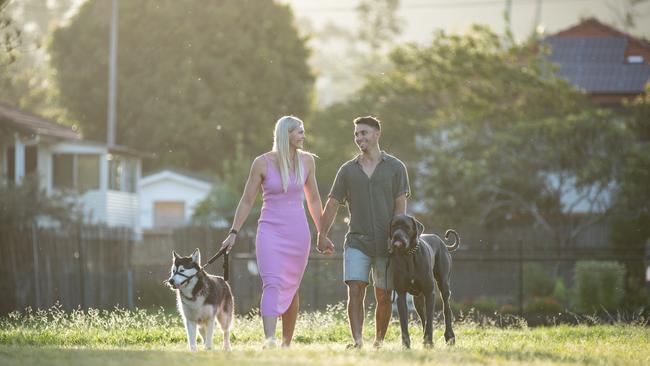
And in the moments, days, weeks and months that follow that call, everything falls away.
Jack is 20 years old, she has been labelled a drug cheat, and for the first time in her life, she feels like she is not swimming, but drowning.
Brisbane-based Jack is now 22 years old, and has recently returned to competitive swimming two years and three months after she was officially notified on July 12, 2019, that a banned substance, Ligandrol, had been found in her system.
The non-steroid anabolic agent, which can help repair and build muscles, had been detected in a random drug test conducted at a swim camp in Cairns, Queensland, two weeks prior to the camp at Nagaoka. Jack was immediately sent home from Japan pending an investigation by swimming’s anti-doping authority, Sports Integrity Australia.
On her return to Brisbane, Jack requested that a re-test (known as a B sample) be taken from her original urine sample, the athlete “100 per cent confident” that a mistake had been made. But that sample was also positive, and following a five-hour inquiry by SIA, conducted on August 2, 2019, Jack was handed a four-year ban from swimming.
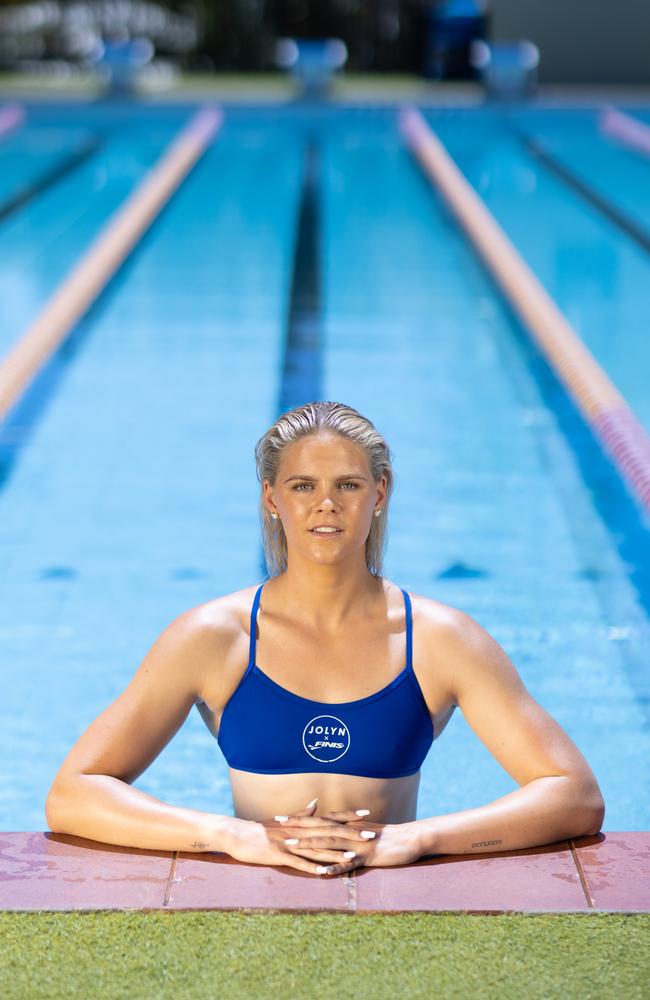
Jack, who has never wavered from her assertion that she has “no idea” how Ligandrol came to be in her system, appealed the decision immediately.
But it would be almost a year later that her case would be heard by the Court of Arbitration for Sport.
On November 16, 2020, CAS reduced Jack’s ban to two years, however, less than a month after that, both SIA and the World Anti Doping Agency challenged that reduction. Both organisations requested the initial four-year ban stand, but on September 16 this year, CAS dismissed their appeal, and Jack, having already served two years of the initial ban, was free to dip her toes back in the competitive waters of Australian swimming.
After the SIA and WADA appeal were dismissed, an elated Jacks posted to her 39,100 Instagram followers: “The nightmare is finally over!”
But while Jack is back, training once more under the canny eye of coach Dean Boxall (he of the exuberant, post-Ariarne Titmus victory dance at the Tokyo Olympics), at the St Peters Western club in Brisbane, she is not the same swimmer – or person – who answered her phone that day in Nagaoka.
As a person, Jack says she feels much older than her 22 years, but as a swimmer, she says she is hungrier than ever to win.
Because despite everything – the lost years, the missed opportunities, the public shaming, the private grief, and the knowledge that in some minds, she will forever be stamped a drug cheat – the one thing that hasn’t changed for Jack, is that she still absolutely loves it.
“I am a swimmer, that’s who I am,” Jack says after a recent training session at St Peter’s Western. “That’s what kept me going through all of this.”
And Jack remembers it all; the events of that day in Nagaoka etched in her memory as permanently as the number 785 tattooed on her arm (Jack is the 785th person to make the Australian team).
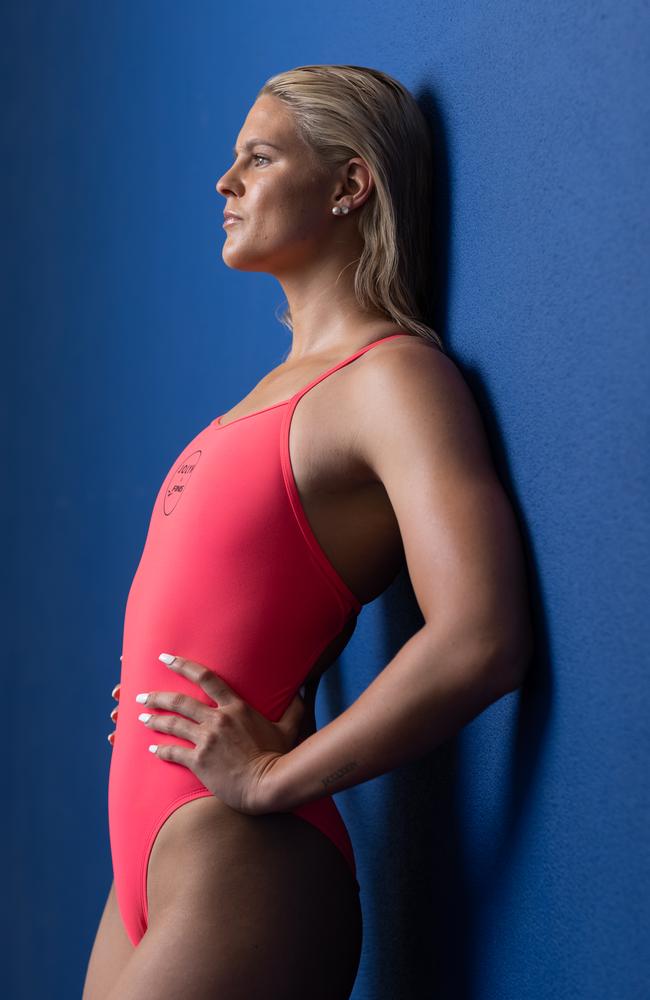
She remembers the moment a swimming offical informed her: “‘Shayna, we have found a prohibited substance in your system’. She explained what the substance was, and I had no idea what she was talking about. I kept saying, ‘I don’t know what that is, I don’t understand what you are saying, you’re wrong, you’re wrong, you’re wrong.’
“All the blood was sort of surging around in my head and it was like I could see she was talking but her words were just not making any sense to me whatsoever.”
Jack felt her legs give way beneath her.
“Everything dropped, I couldn’t stand up, I sort of curled into a ball on a couch, and I could not control my body. I could not control the amount of shock I was feeling. I could not control my shaking. I could not breathe properly. I could not speak, and I felt my heart break.” Jack’s voice wavers, “I actually felt it break.” Jack asked for Boxall, who arrived at the room soon after and later described Jack’s state as “hysterical”.
“I was very concerned for Shayna,” Boxall now says, “deeply, deeply concerned.”
But for Jack, Boxall’s arrival in the hotel room was the first sweep of a lighthouse beam; a silver shimmer of hope in the troubled waters she had found herself in.
“When Dean walked in, once he was told what had happened, he walked straight over to me and looked me in the eyes. He said, ‘Shayna, don’t worry, this is a mistake and we are going to get through this.’ He didn’t say, ‘How did this happen, Shayna?’, or ‘What did they find, Shayna?’ or ‘What have you done, Shayna?’, it was this straight away belief in me, and I carried that with me all the way through.”
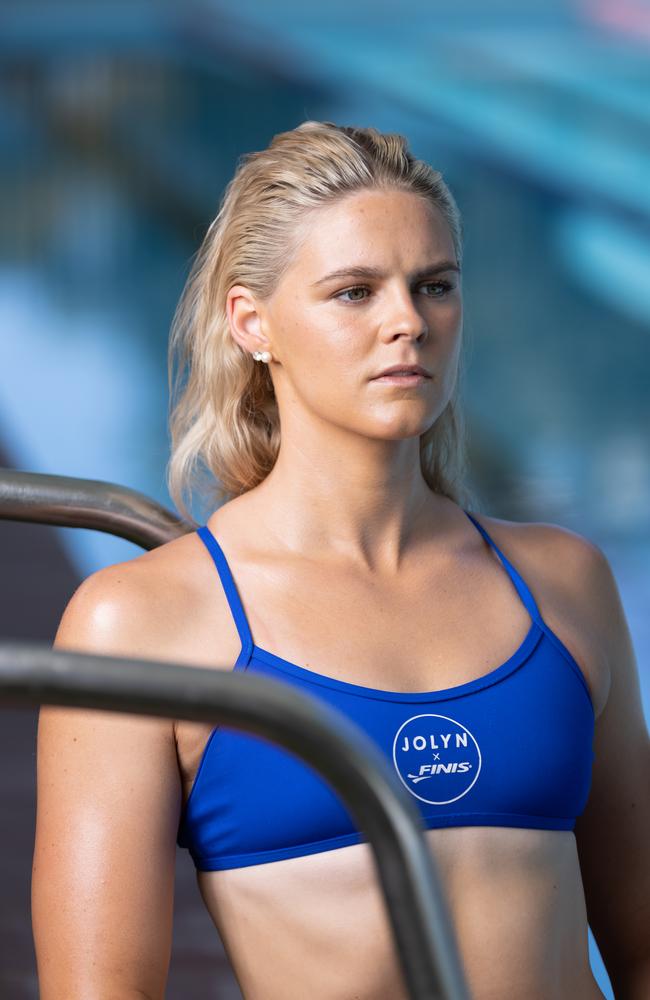
Once Jack was notified of her result, she was told to pack her bags for a flight home the next morning.
She was not allowed to contact her teammates or give an explanation for her sudden departure, leaving many of them to speculate that someone in her family had indeed passed away.
She flew home, chaperoned by a Swimming Australia official, and on arrival – and until the ban was lifted – not allowed in the vicinity of any swim squads or registered coaches.
“I had to train alone, and make sure I was out of the pool before anyone showed up,” Jack says.
“It made me feel shunned by my sport, and it made me feel like nothing. Like a worthless person. Like trash.” Jack begins to cry, and in that moment, she looks far younger than her already young 22 years.
“I tried not to read the papers when I got home,” Jack says, “but I did open my Instagram and the very first message I saw under my photo was a message calling me a drug cheat, and that I should kill myself.”
But in her corner was coach Boxall, as well as world champion Cate Campbell who publicly lent her support.
Campbell told the media that her one-time training mate under the now Sydney-based Simon Cusack training stable, “would never intentionally take a prohibited substance to enhance her performance”.
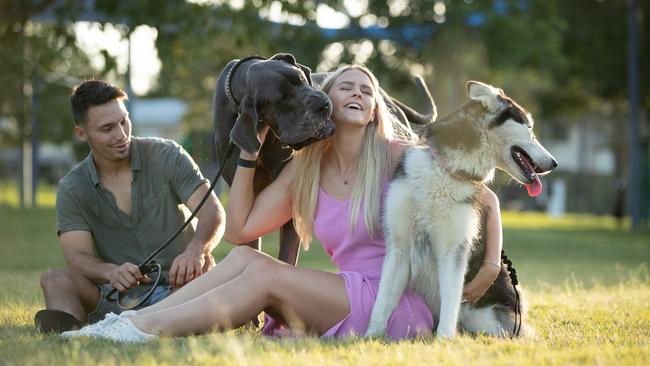
Jack’s family: parents Pauline, a business manager, and Stuart, a diesel mechanic, as well as brothers Mitchell, 26, Zac, 24, and Jamie, 18, “were there 24/7 for me,” she says. “
Also on her team, boyfriend Joel Rintala, 25, a carpenter and professional hockey player who says the hardest thing about the past two years was “watching the person I love fall to pieces, and not being able to do anything about it”.
Many others lent their support – the chaperone who accompanied a sobbing Jack all the way home from Japan kept in contact, while some swimmers, who Jack declines to name, privately defied the “no contact” edict to text or visit her as well.
But many stayed away, choosing to follow the official directive, something Jack says she understands: “This wasn’t easy on anybody.”
In the meantime, Jack, who was part of the world record breaking 4x100 freestyle relay team, along with Emma McKeon, Cate and Bronte Campbell at the 2018 Commonwealth Games, started digging.
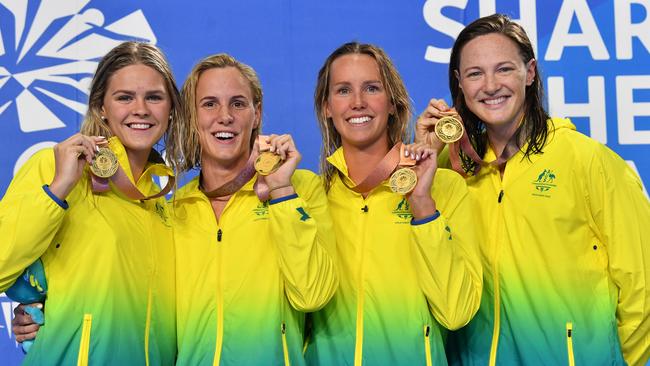
Skin. Nails. Teeth. Teeth whiteners. Nail polish. Beauty products. In her quest to clear her name, Jack and her team doctor Luke Eggleston had all of these things laboratory tested to try to locate the source of the Ligandrol.
Jack also engaged Brisbane based lawyer Tim Fuller who told the CAS that the young swimmer had “gone to significant effort to identify the source of contamination”.
And the man responsible for bringing notorious doping cheat, cyclist Lance Armstrong to justice, Travis Tygart told the ABC’s Australian Story that the treatment of Jack was “not right”.
Tygart, the chief executive of the United States Anti-Doping Agency, says the entire anti-doping system is “unjust”.
“What struck me about the Jack case is (there’s) no performance benefit, no intent. Not even reckless, she did everything she could to abide by the rules, and yet she’s branded a drug cheat.”
What struck the sole arbitrator who presided over Jack’s CAS appeal, Alan Sullivan, was the swimmer’s “credibility”.
Sullivan later described Jack as “completely straightforward, genuine and honest in the answers she gave.
Her demeanour was excellent and her dismay at the situation she found herself in was evident”. After the first appeal, Sullivan found “on the balance of probability, Jack did not intentionally ingest Ligandrol” and ruled that the standard four-year anti-doping suspension be halved.
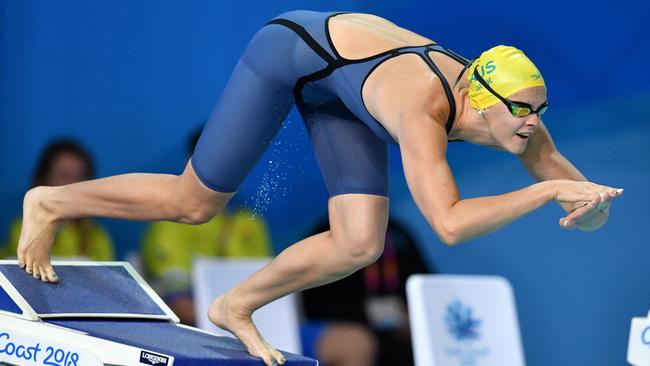
And yet. Despite all their efforts, Team Jack never did discover how the Ligandrol was in her system – possibilities put forward have included contaminated supplements, using a blender which may have been contaminated, or touching a surface at the pool or gym in Cairns where Jack was originally tested.
Not knowing means that in some quarters, there will always be a question mark over her name. It was also the sticking point that SIA says led to its appeal over her reduced suspension.
In his recent and first public comments about the Jack case, SIA’s chief executive David Sharpe said: “This was never about Shayna. World doping rules require there to be evidence of how that substance enters the system, even if it’s inadvertent … We were challenging the application of the rules, absolutely not challenging Shayna and wanting to put her through any more trauma.”
But traumatised is exactly what Jack was, losing sight of the lighthouse’s sweep in the darkness.
“I … I think, I think I should say it. I think I should tell it,” Jack says quietly.
“I don’t want to hide anything and I guess I want people to understand that I did the right thing by getting help when I did, in case someone reads this and is thinking that maybe they might not want to be around anymore, because, aah, I didn’t.”
Jack takes a deep breath, everything rushing out on its exhalation.
“So I no longer wanted to be around, because I didn’t see a purpose in my life any more. I’d spent my whole life thinking swimming was the best sport in the world, the most amazing sport, that it would do everything to support me, but I was very wrong. In no circumstances did I feel my sport had protected me in any way or helped me, and it got to the point where I just did not want to be here. And then I looked at myself and I thought about my parents and everything they’d done to support me, and I looked at Joel and my friends, and I thought ‘no, I cannot do that’. And I also thought this is not who I am. I am not somebody who gives up, so I need to get help. I went to my doctor and I said, ‘I’m not sleeping, I’m not eating, I’m having very dark thoughts.’’
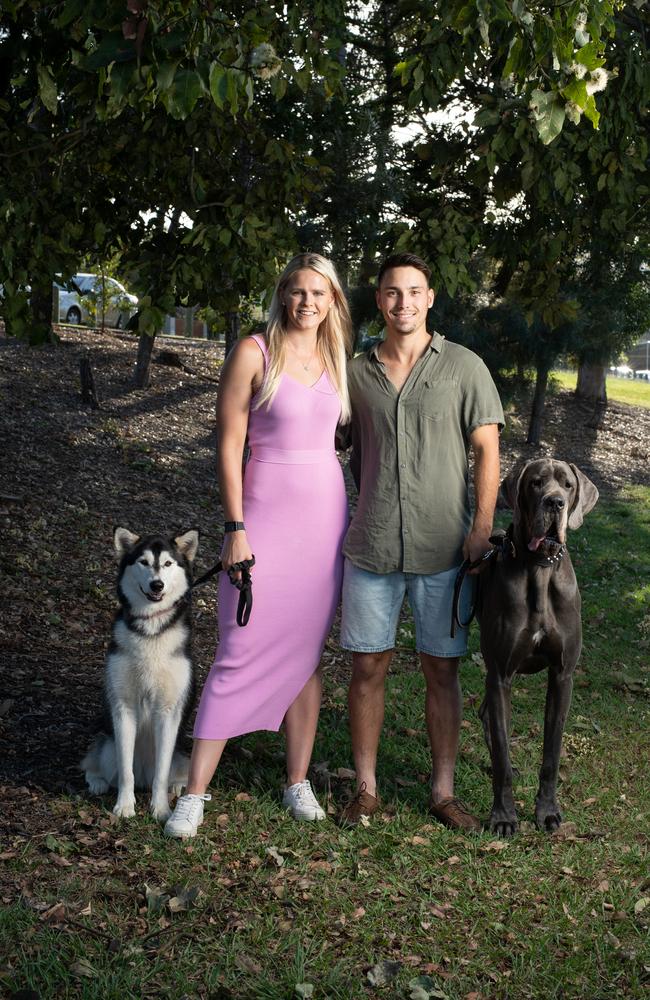
Jack says the doctor referred her immediately to a psychiatrist, who she still sees, and who diagnosed her with “reactive depression” which is as it sounds, depression caused by circumstance.
“I want people to know that I am seeing a psychiatrist and that I went to that dark place, because I want people to know it’s okay not to be okay,” she says.
“Whatever your spiral is, or where it’s come from, it doesn’t mean you’re screwed up, or that there’s something wrong with you. It means something has broken you. That’s all. …You just need to try very, very hard to fix it.”
These days, Jack is back in the swim of things, literally and figuratively.
Living in South Brisbane with Rintala, and the couple’s two dogs, Hugo and Willa, Jack has just started a part time job with the Queensland Police Service as a business support officer.
She’s also back at St Peter’s Western, no longer required to train alone, and no longer afraid that it could all be taken away “in a heartbeat”.
“When the call came that my appeal had been upheld, my boyfriend Joel came to me and said, ‘You‘re safe, you’re finally safe’, and that’s how I feel, safe.”
She’s also feeling strong, and having missed out on the 2021 Tokyo Olympics due to her ban, Boxall and Jack now have their eyes fixed on Paris 2024. Asked if she believes she will be on the starting blocks in the French capital, Jack replies with a smiling, “Oui, oui”.
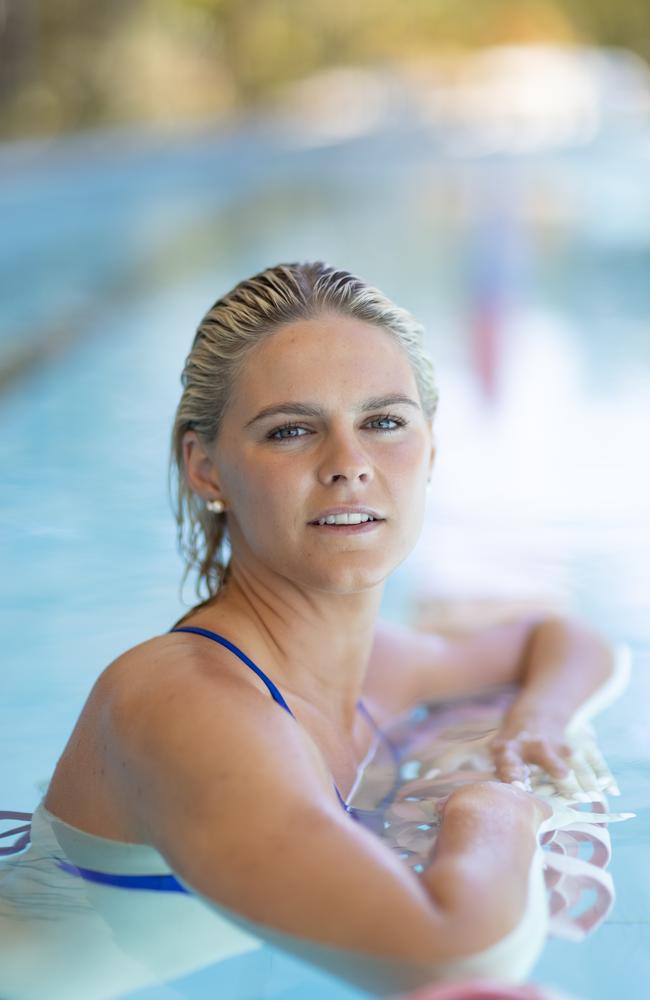
It’s a light and carefree moment in an otherwise intense few hours, as Jack grappled with the litany of the past couple of years.
“I have been angry, I have been sad, depressed, traumatised, lonely, shunned and ostracised … but I never gave up the fight.”
She intends to use that fight every time she races. “I will use this positively,” she says. “It’s fired me up, not dragged me down and I am going to use this fire in my belly and the fire in Dean’s belly to propel me forward, and push through any pain because I now know there is nothing I can’t overcome, nothing.”
And although her mother Pauline doesn’t know it, “and probably won’t be happy about it”, Jack is planning on getting another tattoo. It will add to her number 785, and the words are “Hakuna Matata”, the ubiquitous phrase from the Lion King, meaning “no worries”.
Jack’s new tattoo will be of a lioness holding an arrow. The lioness, she says, is because she is “fierce” and the arrow to remind her that no matter how far she was pulled back from the bow, she kept going.
She still is; head down in the water, once more following the long black line, absolutely loving it.
More Coverage
Originally published as ‘I went to a dark place but I never gave up’: Shayna Jack reveals how she fought back from brink




